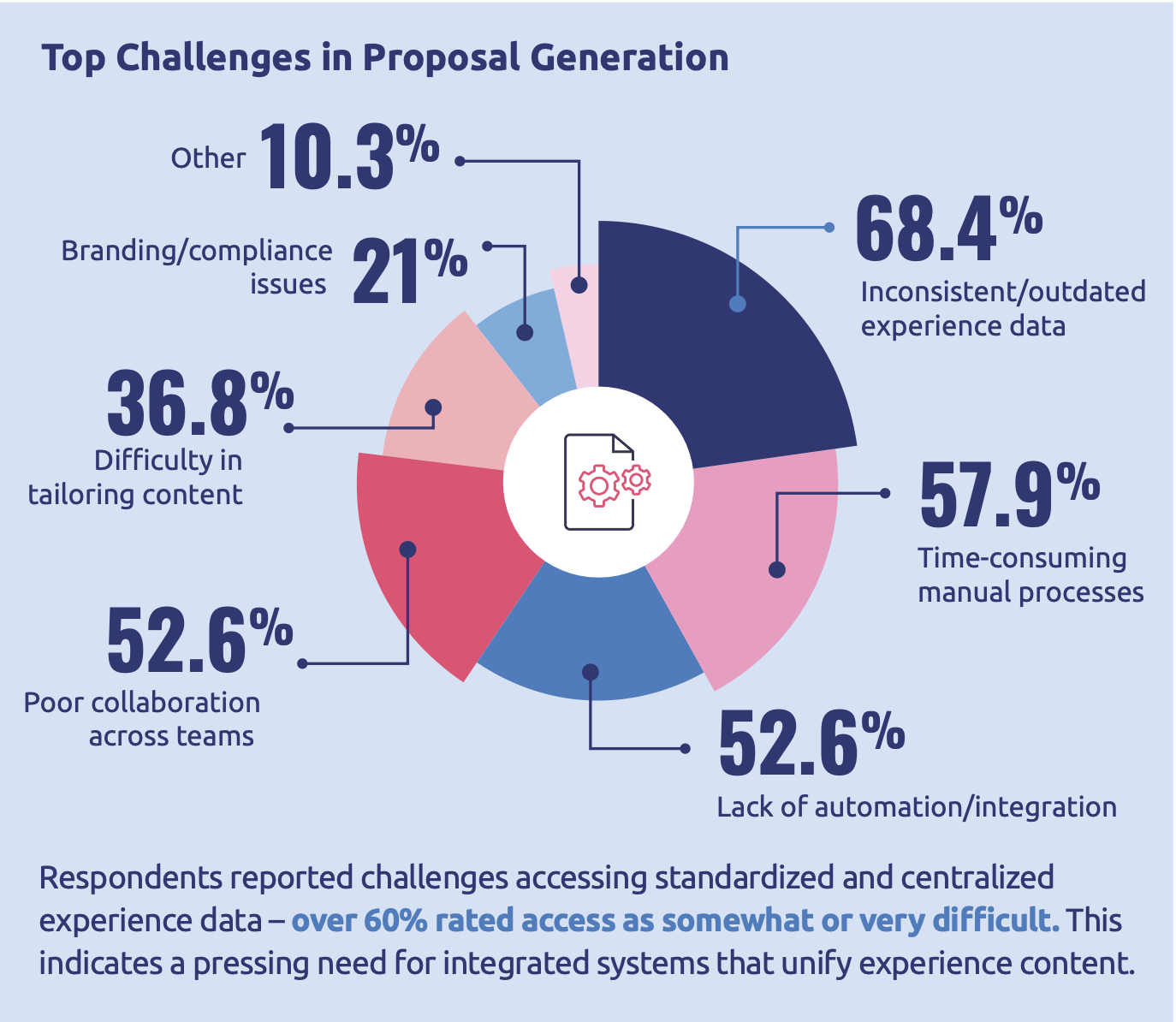
I laughed, I cried, it was considerably worse than Cats.
That pretty much sums up client reactions to the pitch decks law firms slap together manually. A grand farce draped in the delusion of strategy, built on systems that make even the DMV look like an agile startup.
The State of Proposal Generation and Business Development in Law Firms for 2025, put together by Ikaun, examined the RFP process and discovered a slow-moving pageant of legacy tools, tribal fiefdoms, and task duplication. And it cuts across the industry, with respondents drawn roughly a quarter from each the Am Law 100, Second Hundred, NLJ 500, and beyond.
As corporate legal departments raise expectations – 70% now demand faster, more tailored RFP responses, up from 56% in 2022 – law firms are under pressure to respond with greater speed, precision, and professionalism. Yet many remain stuck in inefficient, outdated processes that hurt their ability to compete.
For Act I, we have “Manual Labor As Performance Art.”
According to the report, 79 percent of law firm proposal workflows are “fully or mostly manual.” The most popular tool for putting together proposals is… Microsoft Word? Apparently, 46 percent of firms are still cranking out proposals in Microsoft Word and I can only assume the other 54 percent are in Word Perfect. Word is a perfectly fine word processor, but winning business isn’t a constrained by local rules.
Unsurprisingly, respondents weren’t satisfied with their technology while remaining committed to doing the same thing over and over and expecting a different result. That’s supposed to be the definition of a psychopath, but it applies to law firms.
On second thought… that might track.
Moving to Act II: “The Secret Garden Of Bypassed Tools.”
Despite firms spending hefty sums on tech, 68 percent of users said they bypass those tools entirely. Whether it’s a product of stubborn, luddite users or ill-suited, clunky tech, the theme is a misalignment.

Like any good play, we now introduce Chekov’s Large Language Model. The only thing firms agree on more than doing proposals from scratch like a middle school book report diorama, it’s that AI will swoop in to save them. A whopping 84 percent said “AI and automation will shape the next era of proposal generation.”
On to Act III: “They Don’t Get Off The Island.”
Every episode of Gilligan’s Island had to end with our castaways failing to get off the island. Why did Zsa Zsa get to leave and why didn’t she send back help? Don’t ask such questions. The point is the treadmill must continue and the crew must remain on the island until the inevitable made-for-TV reunion backdoor soft reboot pilot.
For our current purposes, this means firms unhappy with their tech and pining for AI must keep doing what they’re doing until the heat death of the universe. The survey reveals that most firms spend more time assembling proposals than improving how they propose. That’s a problem because integrating the AI tools that they all expect to save them will require devoting some serious time to coming up with a better process. AI without a vetted process is revenue stream chatroulette.
And that’s not helped when proposal ownership is itself a fractured mess. Does Marketing run it. Sort of? Business Development? Also yes. Relationship partners? Why the hell not?
What firms need is not just better templates. They need an infrastructure shift: one that enables real-time collaboration, accurate data reuse, and scalable delivery models. As legal procurement becomes more sophisticated, proposal generation must evolve from a tactical task into a strategic growth engine.
Firms need to give their teams the time to make the leap. The opportunity to rewrite the playbook is there, but it takes human effort to build a plan that gives AI an opportunity to contribute in a useful way or it’s just a computer playing Mad Libs with the firm’s future. Without a plan, the AI everyone’s hoping will go off in the third act will end up another disappointing tool people bypass as they churn out something passable in Word to keep the lights on.
 Joe Patrice is a senior editor at Above the Law and co-host of Thinking Like A Lawyer. Feel free to email any tips, questions, or comments. Follow him on Twitter or Bluesky if you’re interested in law, politics, and a healthy dose of college sports news. Joe also serves as a Managing Director at RPN Executive Search.
Joe Patrice is a senior editor at Above the Law and co-host of Thinking Like A Lawyer. Feel free to email any tips, questions, or comments. Follow him on Twitter or Bluesky if you’re interested in law, politics, and a healthy dose of college sports news. Joe also serves as a Managing Director at RPN Executive Search.